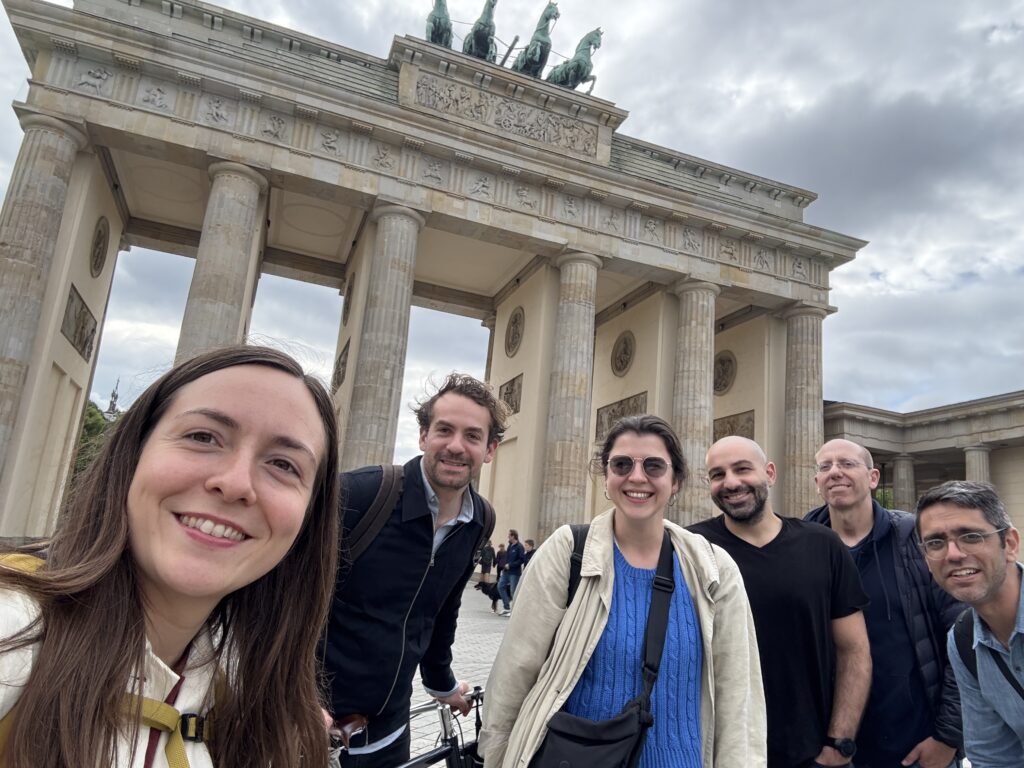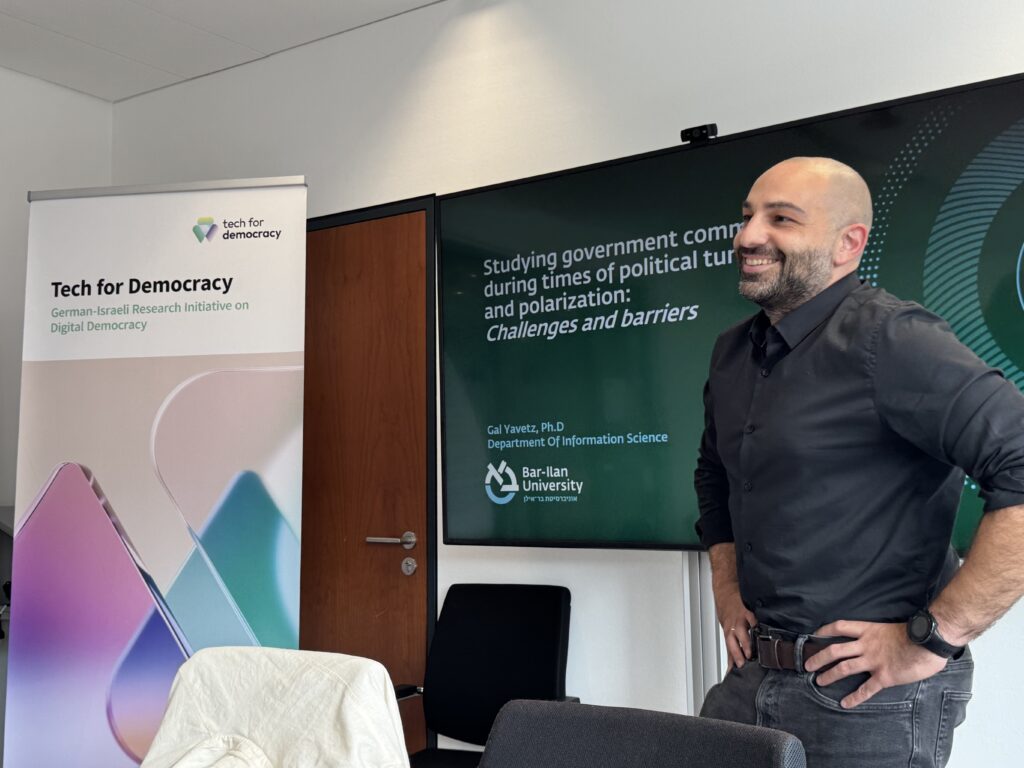Strengthening Digital Democracy:
Israeli Delegation Visits FZI in Berlin
Research focus: Digital Democracy and Participation
What impact do digital technologies have on democracies worldwide? How can science contribute to strengthening democratic societies? And what role do international research collaborations play in this? Representatives from science, politics, and civil society addressed these questions during a three-day visit by an Israeli delegation to the Berlin branch of the FZI Research Center for Information Technology.
The exchange was part of the “Tech for Democracy” project initiated by the House of Participation (HoP) at the FZI. The aim is to promote scientific cooperation between Germany and Israel on digital democracy. It is funded by the Carl Zeiss Foundation.
International cooperation for democratic innovation
Prof. Dr. Nir Grinberg, Prof. Dr. Gal Yavetz, and Amit Ashkenazi were involved, representing renowned research institutions such as Tel Aviv University, Ben-Gurion University of the Negev, and Bar-Ilan University. Representatives from the Neubrandenburg University of Applied Sciences, the Karlsruhe Institute of Technology (KIT), and the University of Trier also participated in the exchange. In addition to the project team, led by Dr. Jonas Fegert and Cosima Pfannschmidt, the FZI was represented by Executive Directors Jan Wiesenberger, Prof. Dr. Stefan Nickel, and Prof. Dr. Marius Zöllner. Several scientific staff members and scientific directors also took part.
Practical and political input came from organizations such as the Center for Monitoring, Analysis, and Strategy (CeMAS), the Institute for Strategic Dialogue (ISD Germany), and iconomy, which discussed current social developments and challenges with the delegation in a roundtable discussion. Meetings with political decision-makers, including Dr. Anna Lührmann (Member of the German Bundestag, Alliance 90/The Greens) and representatives of the Federal Ministry for Digital and State Modernization, rounded off the program.
In addition to the workshops and roundtable discussions, a walking tour of Berlin focusing on the history of democracy provided an opportunity for professional and personal exchange.


Scientific dialogue instead of isolation
Especially in times of global tension, it is clear that democracies around the world are under pressure. However, scientific dialogue across borders can build bridges, promote mutual understanding, and provide concrete impetus for social resilience.
The Tech for Democracy project exemplifies this understanding. It is supported by the FZI and is working to establish a long-term research network between Israel and Germany in application-oriented computer science research. The common conviction is that global challenges require cross-border solutions – and research can be a key driver in this regard.
